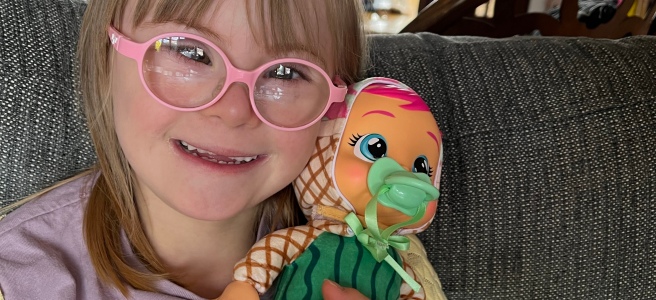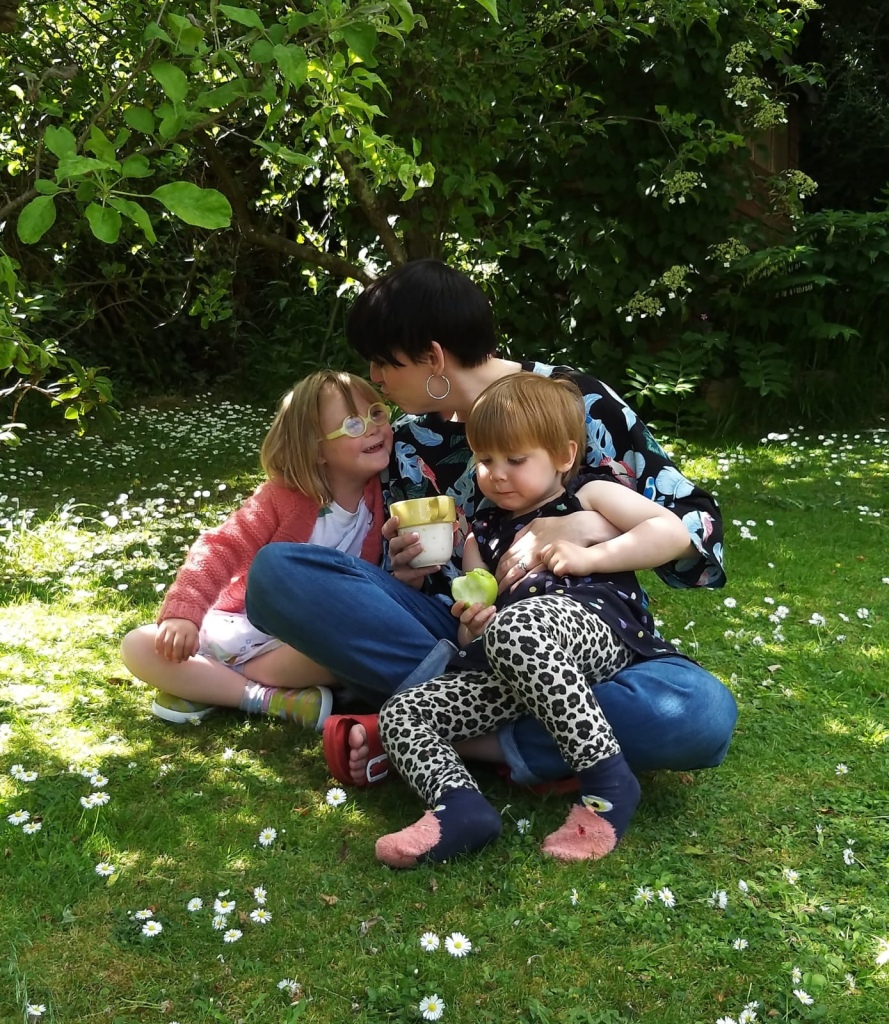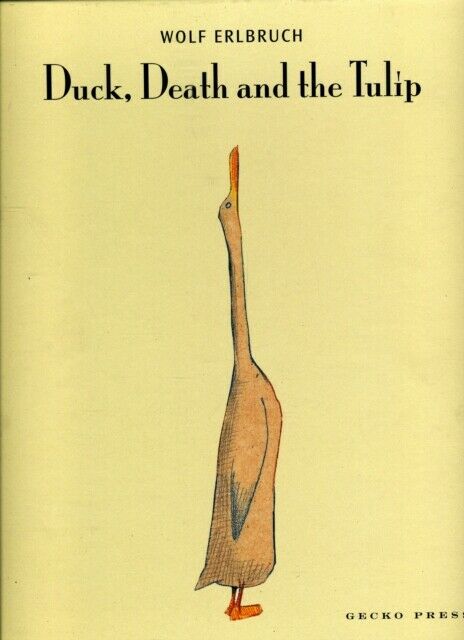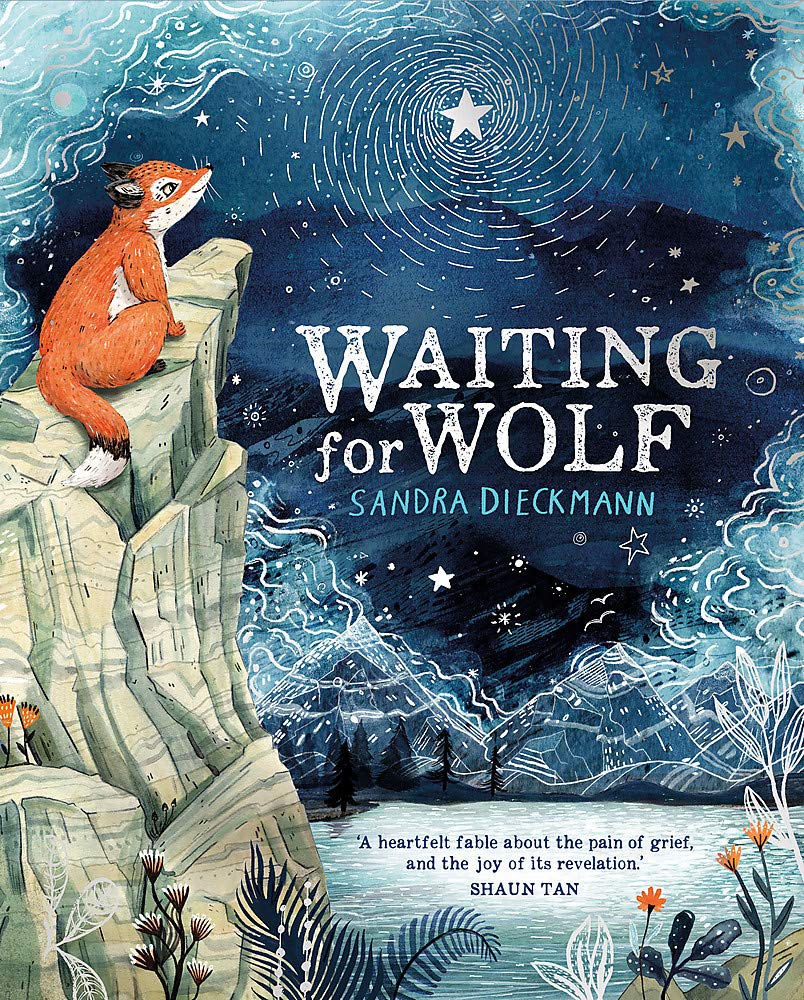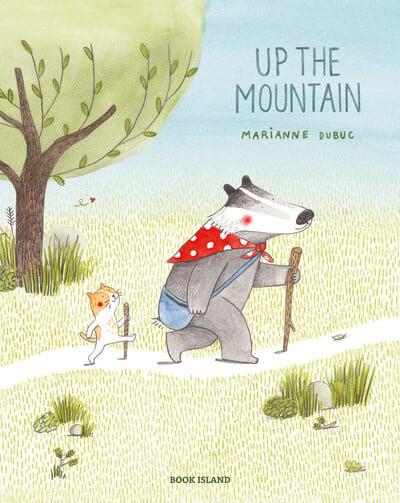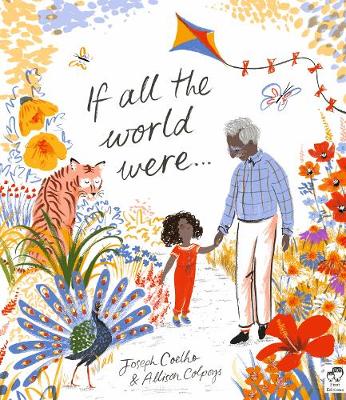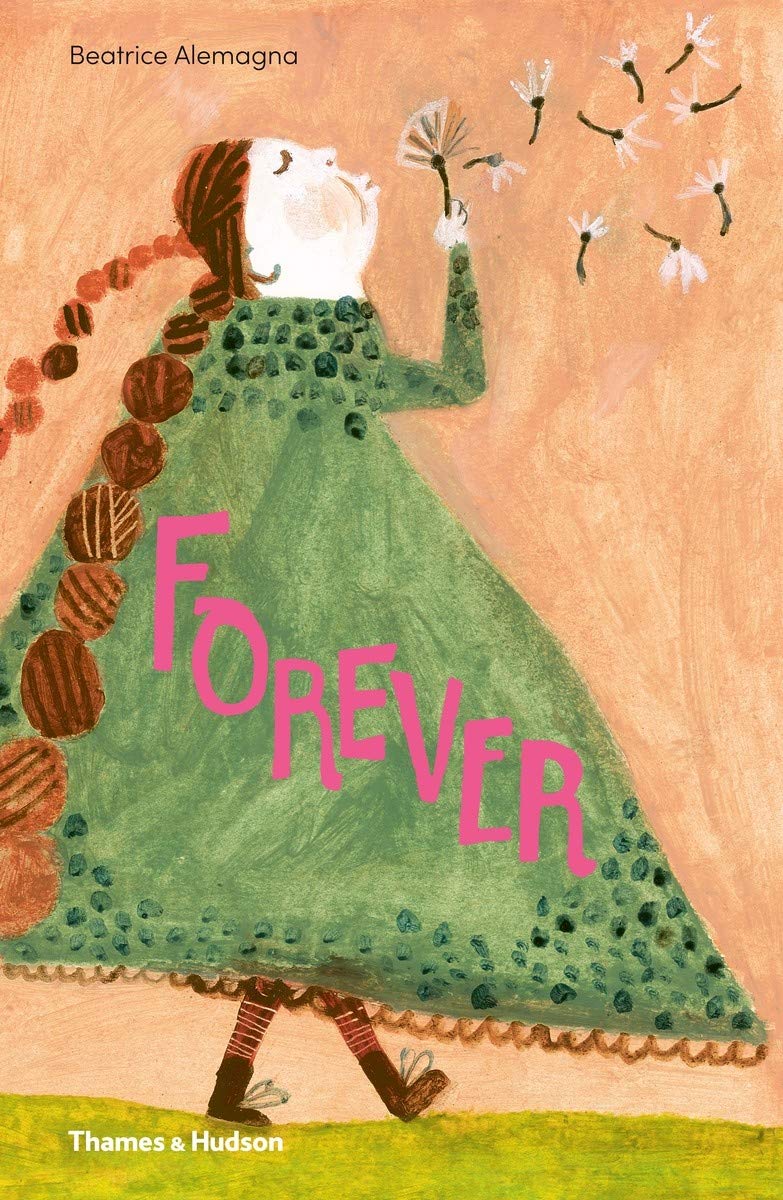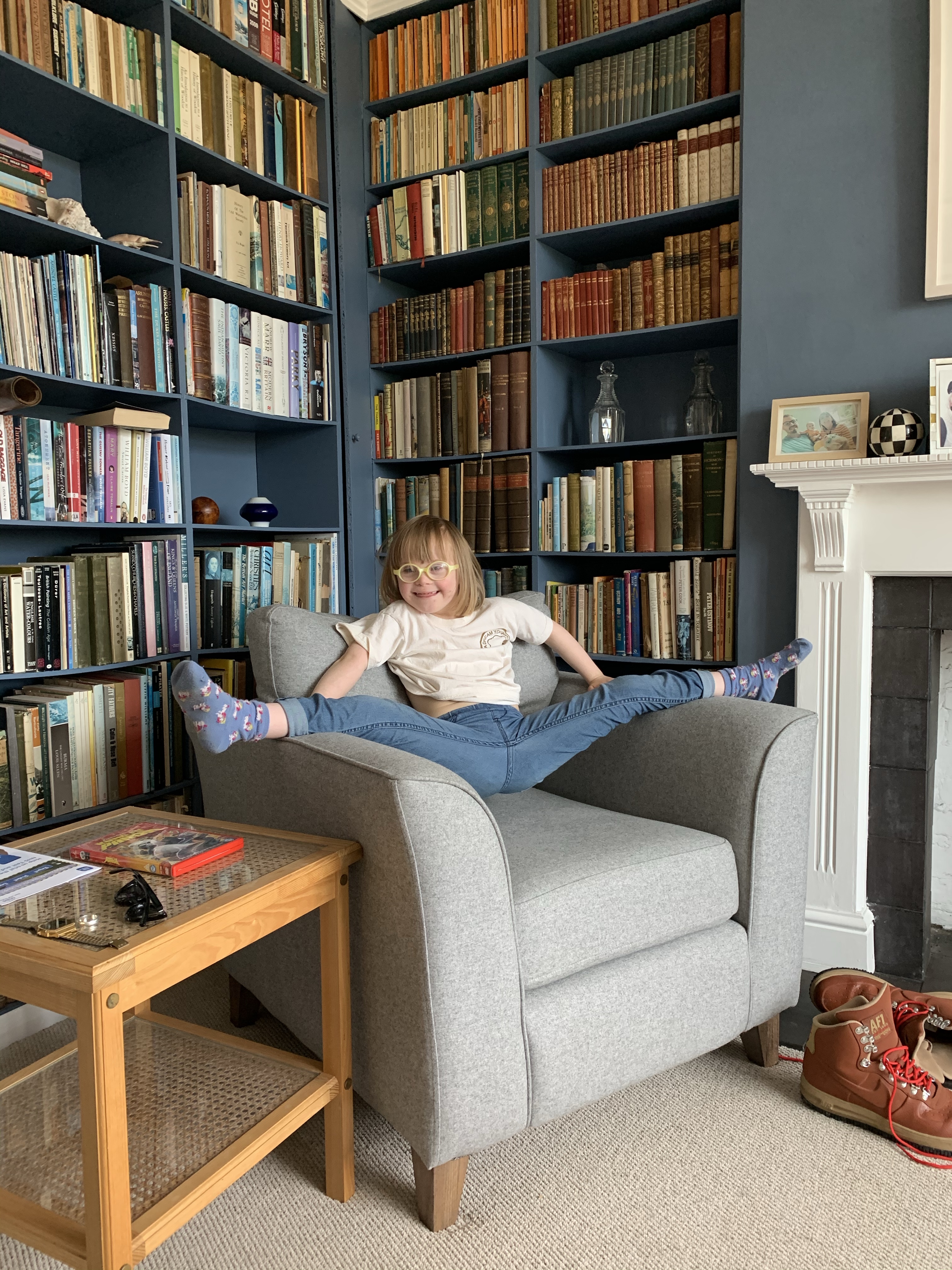When the birthday comes around, my musings about the past, present and future come too. So here we are. Nine years of Audrey.
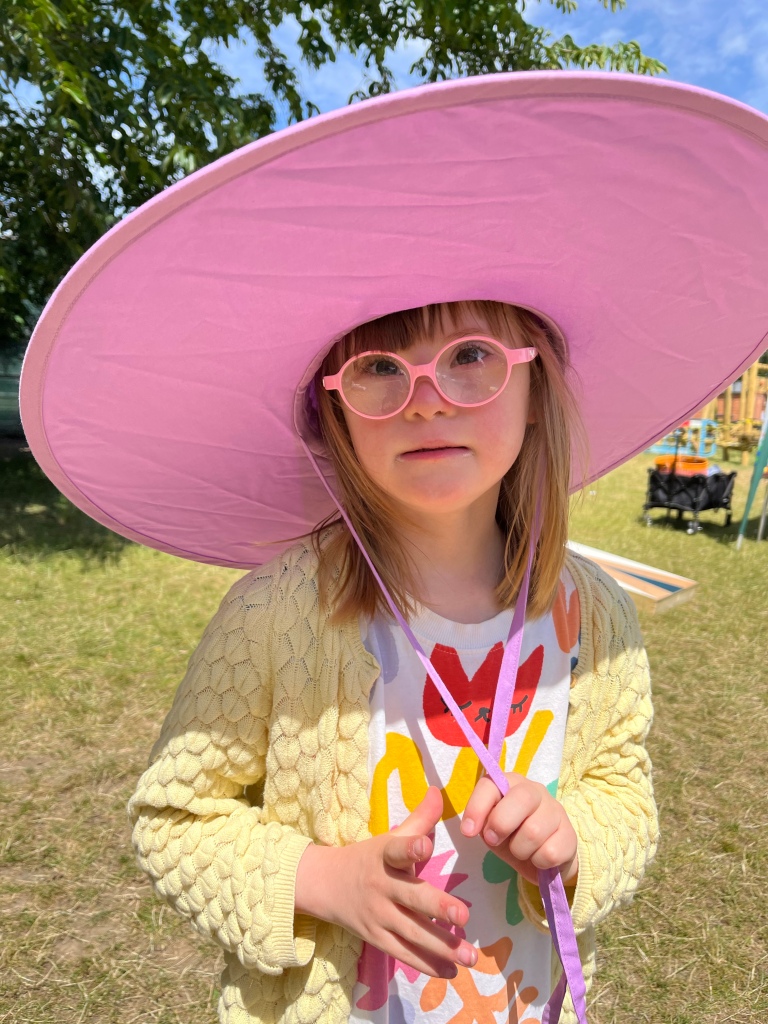
I guess I would normally be talking about how far we’ve come since the surprise diagnosis postnatally. Sharing positives, expressing how much we love and appreciate her, but it’s also worth talking about the not-so-super-fantastic things about having a child with needs like Audrey’s.
You see, in the early Instagram and blogging years, I read a few things other T21 mums said about pushing the whole “cute” angle with Down syndrome which can be damaging, and belittle the experiences of those facing the reality of a more grown up child with DS. “It’s no so cute if they’re 18 and still in nappies” etc.
Not everyone’s reality is a “capable” child. But at the time I just felt that, well, my child is cute and loveable and easy going – I can only write and represent my own reality, right?
Whilst that remains true (I can only write about my experiences), I see more and more as Audrey grows, with the challenges we face/will be facing, why those families might feel the “cute” loveable baby that’s “just like other babies” angle is a bit icky.
Because Audrey is fabulous. She’s awesome. A lot of fun, a kind and sweet little girl. But she’s also not. She’s whiny, difficult, stubborn, she can be mean, unkind, naughty and hard work. Well, all kids are complex and can be kind but also mean… Audrey’s ability to be both wonderful and a pain in the butt is clearly something she has in common with neurotypical kids.
But the real “difference” – the real area where I feel like the mother of a child who is disabled/neurodivergent/has additional needs, are those things that separate her without question from her typical peers.
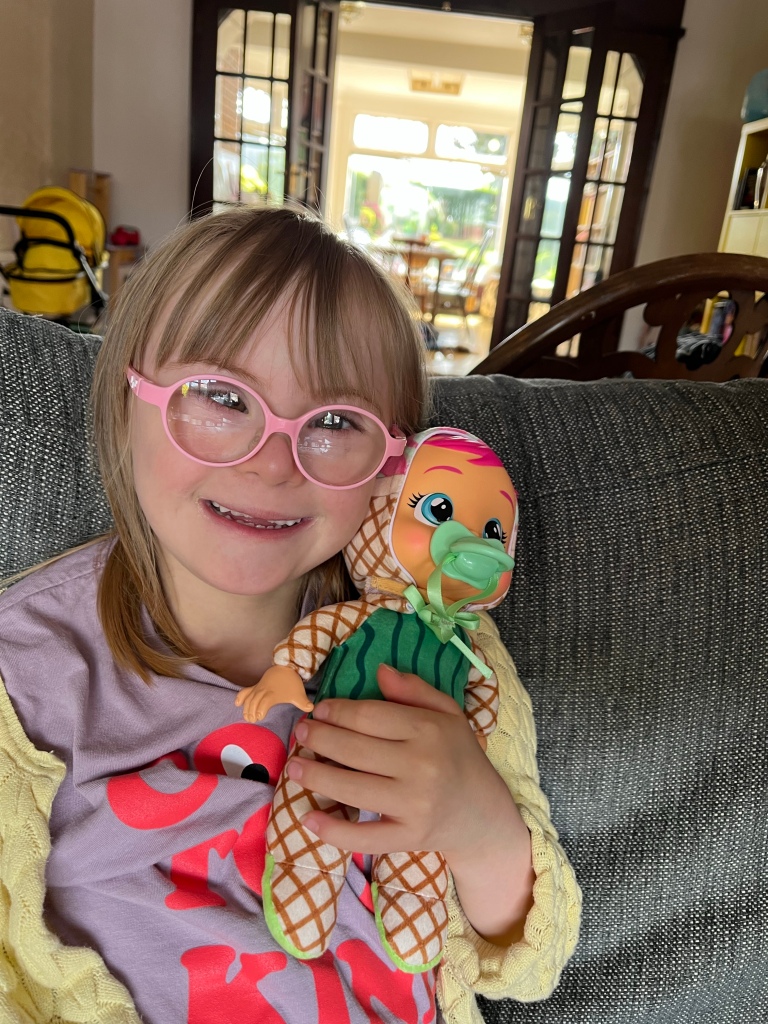
Running. Audrey likes to run down the street ahead of us. She’s pretty good at stopping at the kerb (but that’s not 100% guaranteed), but it’s still very stressful. In crowded areas, she could get lost or knocked over, roads with driveways or entries to parking areas etc are unsafe and it’s especially uncomfortable if she is able to turn a corner miles ahead of me. She loves to be free and she enjoys doing this. If Rex did the same, but I asked him not to, he would stop. Audrey on the other hand, often takes great pleasure in defying me. I can walk down the street with her younger brother and he will hold my hand, listen to me and walk sensibly. A walk down the street with Audrey can be like that (rarely) but more often than not, it’s stressful,
Complaining. This girl can whine. She can use this skill to get what she wants, but if we do stand firm, she’ll just keep doing it even if it is ruining everyone’s experience. She’ll whine if we are watching a TV show she doesn’t want to watch. She’ll whine if the walk we are taking is too long. She’ll whine if she wants to go home from somewhere we’ve just arrived at. She’s rarely shy at saying what she’s thinking, especially if that thought is “I don’t want to do this”.
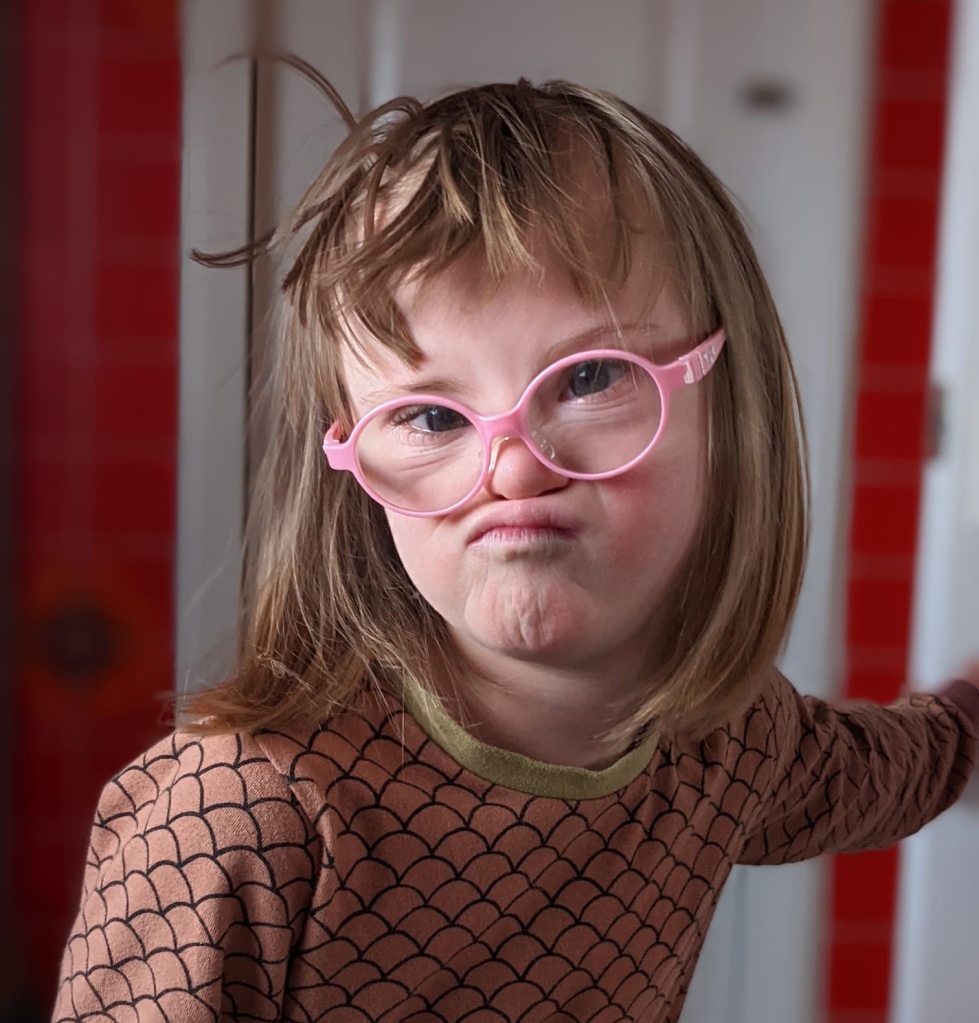
Stopping. Preferable to the running? I’m unsure. The running fills me with fear, but the stopping brings out a very angry grown up mum side to me. I have very little patience with her when she just sits and refuses to move. It drives me mad. As she gets bigger I wonder how I will move her. Obviously I hope she’ll grow out of it soon.
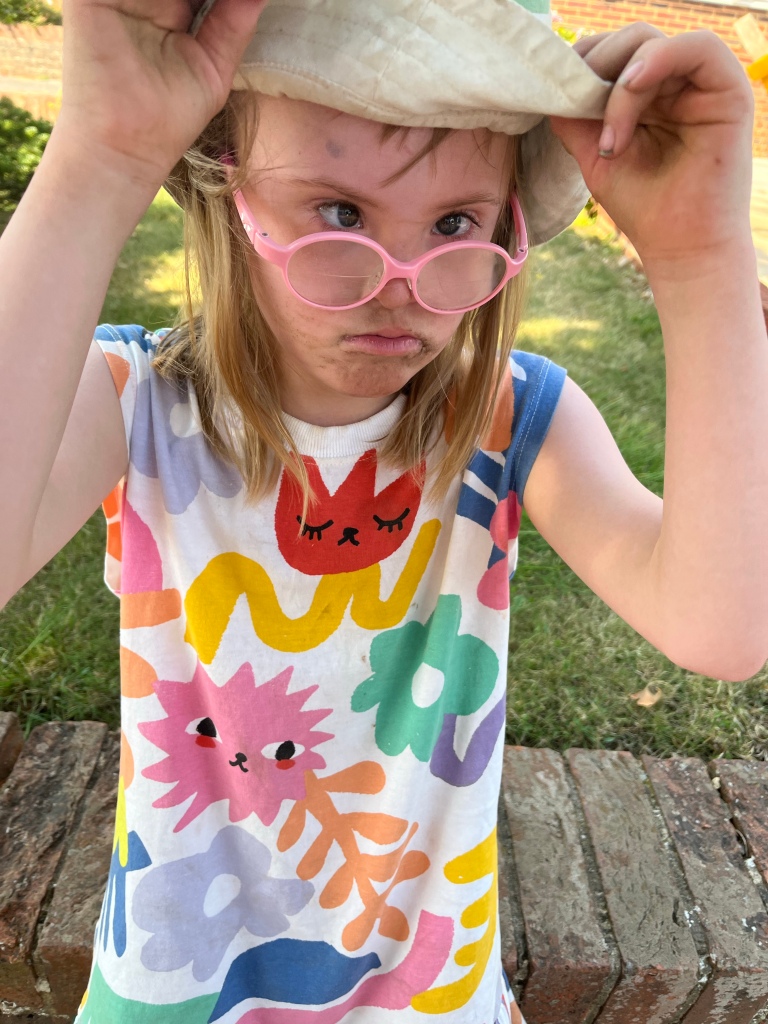
Developmental milestones. This is a big one. Where other parents of nine year olds are eyeing up how close they are to an independent kid… that feels a very long way off for us, because it is. We are not even at the stage where we can trust her out of sight in the park (which is fine for her six year old brother), so getting to a stage where she’s maybe walking to a friend’s house around the corner or making us tea – that’s not even close. I know I am going to struggle when parents of typical kids start to discuss how much easier things are, and what it’s like to leave behind those stressful years of doing everything for your child… when I shall remain in it. Still reading bedtime stories, still wiping her bum…
Physical barriers. Audrey finds climbing, uneven ground, stairs and all sorts of fairly basic physical things tricky. She’s always going to have to work that but harder at things like this and it’s a shame because she loves sport, but it’s not always accessible as she can’t keep up with others and is a bit fragile (a good example would be that she loves kicking a ball around, but the reality is, playing actual football she will either never get a look in (too slow) or will get hit/kicked/knocked and be upset and want to stop). She can’t take part in the same clubs an activities that typical kids can without additional support.
Repetition. This kid can repeat and repeat. A good example would be: on Mondays, she has an after school club which means she needs two snacks (one for morning, one for after school). If someone so much as mentions “Monday” Audrey will say what club she does and that she needs two snacks. She’ll mention this on Sunday night, in prep for Monday. She’ll mention it on Monday morning, so I don’t forget. She’ll probably mention it when I collect her. And she’ll no doubt say at some point in the week when we discuss what we are doing Thursday, and she’ll feel the need to say that on Mondays she has two snacks. She is that repetitive. Yes some of it winds me up. But what I always think is – if I can only just about handle it, when I love her to bits, do other people just find her crazily annoying?!?
Societal barriers. There is no escaping that Audrey’s options are not the same as her brother’s. If she wants to do an after school club, I don’t just sign her up and shove her in. And the obstacles will increase as she gets older (for example, when Rex is a teenager, there will be no need for “childcare”, but can the same be said of Audrey in her teenage years?). And once she reaches adulthood, we have a new level to navigate (education, work, living arrangements, independence, life skills). I am not expecting an easy ride.
So there you have it, a little “happy birthday Audrey” with a big helping of real life. Audrey is a complex being! Not just the cute and hilarious kid that makes me proud. She is all of the things. She will need more help than her typical peers, but we are up for it. And nine years on from holding that scrawny little thing that looked like an orang-utan, wondering what I did to deserve a baby with Down’s syndrome, at least now, despite everything, I feel like it had to be something good.

